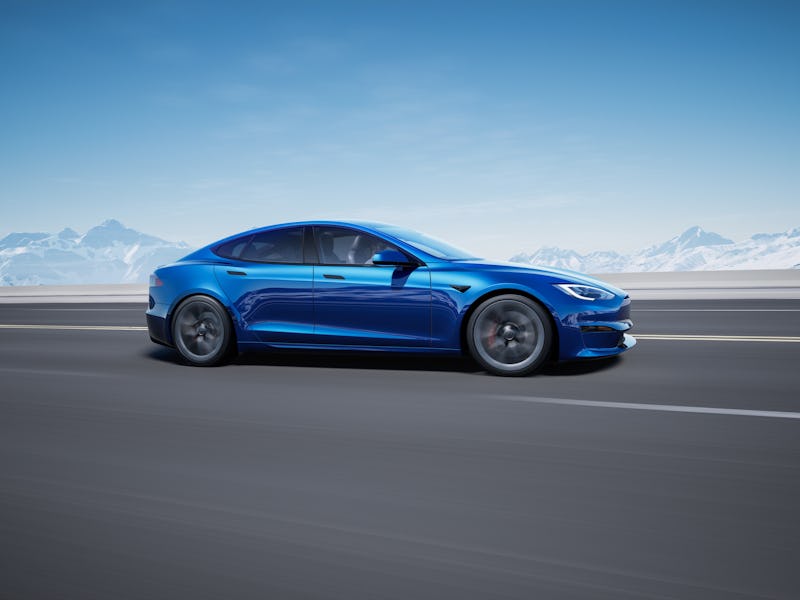How Tesla's latest move could make electric car batteries cheaper than ever
Tesla wants to reach a mass market with its electric vehicles, and a new investment could help them do that.

Tesla may be about to make electric car batteries even cheaper.
On Thursday, Dalhousie University announced that the electric car company had given $3.1 million to help advance battery development. The funded project aims to give batteries lower prices, greater energy density, longer lifetimes, higher safety, and more sustainable materials. The team is particularly focused on batteries used in electric vehicles and energy storage.
The money is in good hands: One of the researchers, Jeff Dahn, is widely regarded as a pioneer in the field who helped develop the original lithium-ion battery.
Want to know more about Tesla’s plans for the future of batteries, what the September 2020 Battery Day meant for electric cars, and how the firm plans to massively increase battery production? Check out our interview with Jordan Giesige, host of YouTube channel “The Limiting Factor,” only in MUSK READS+
It’s a strong move in Tesla’s goal to reach an increasingly broader market with its electric vehicles. CEO Elon Musk outlined in the company’s first master plan in 2006 how he intended to start off with a supercar (the 2008 Roadster at $98,000), use the money to build a cheaper car (the 2012 Model S at $57,400), and use that money to build an even cheaper car (the Model 3, available for $35,000 in 2019).
But the cost of the battery is a big hurdle in bringing down prices. BloombergNEF claims that in 2010, a lithium-ion battery pack cost $1,100 kilowatt-hours. This declined to a market average of just $137 by 2020.
It’s a welcome decline, but it means a 100-kilowatt-hour battery would cost $13,700. That means the cost of the battery makes up a significant portion of the overall costs, which means reductions could dramatically change the costs around electric cars.
Tesla's upcoming Cybertruck.
Why is this research project so important? — In short, Tesla has given $3.1 million to a legendary battery researcher.
Tesla has maintained a long-standing relationship with Dahn and signed a five-year research agreement with him in 2016. This exclusive partnership was renewed in January 2021 for a second five-year term.
Dahn has received huge praise for his research. Jordan Giesige, host of battery-focused YouTube channel “The Limiting Factor,” told Inverse in September 2020 that Dahn’s work is “such a massive improvement that it might land [him] a Nobel Prize at some point.” The researcher received the Gerhard Herzberg Canada Gold Medal for Science and Engineering in 2017 and the Order of Canada in 2020.
The trio has also received $2.9 million from the Natural Sciences and Engineering Research Council. This makes it the largest alliance grant the university has ever received from the council.
Tesla wrote in a statement about the funding:
“We are thrilled for our work with Dalhousie, Dr. Jeff Dahn, Dr. Chongyin Yang and Dr. Michael Metzger. We are excited and look forward to their important contributions in battery technology to help achieve our mission.”
What else is Tesla doing in this area? — In September 2020, Musk presented a Battery Day event where he detailed Tesla’s plans to produce its own batteries. The firm currently relies solely on manufacturing partners like Panasonic.
Tesla’s batteries will measure 46 by 80mm. A new dry electrode process will reduce the energy used in production 10-fold. One production line will be able to make seven times the amount of battery capacity as before. Other advancements include replacing cobalt with nickel in high-end vehicles.
Overall, these advancements will lead to a 54 percent increase in battery range between charges and a 56 percent reduction in price per kilowatt-hour.
Musk wrote in December 2020 that the under-construction Berlin factory would use the new cells. In the company’s first-quarter 2021 earnings call in April, Musk said the firm was “probably not more than 18 months away from volume production” of the new cells.
Perhaps Tesla’s most exciting announcement on Battery Day teased how Dahn’s team will advance electric cars even further — plans to make a “compelling” electric vehicle with a starting price of just $25,000.
SUBSCRIBE TO MUSK READS+, A PREMIUM NEWSLETTER THAT COVERS THE WORLDS OF ELON MUSK, SPACEX, TESLA, AND EVERYTHING BETWEEN.